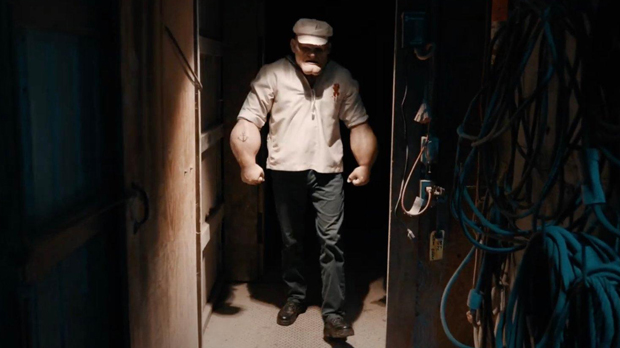 Parallel Mothers (2021) Sony Pictures Classics/Drama RT: 123 minutes Rated R (some sexuality) Director: Pedro Almodovar Screenplay: Pedro Almodovar Music: Alberto Iglesias Cinematography: Jose Luis Alcaine Release date: December 24, 2021 (US) Cast: Penelope Cruz, Milena Smit, Israel Elejalde, Aitana Sanchez-Gijon, Julieta Serrano, Rossy de Palma. Spoken in Spanish w/English subtitles
Parallel Mothers (2021) Sony Pictures Classics/Drama RT: 123 minutes Rated R (some sexuality) Director: Pedro Almodovar Screenplay: Pedro Almodovar Music: Alberto Iglesias Cinematography: Jose Luis Alcaine Release date: December 24, 2021 (US) Cast: Penelope Cruz, Milena Smit, Israel Elejalde, Aitana Sanchez-Gijon, Julieta Serrano, Rossy de Palma. Spoken in Spanish w/English subtitles
Rating: *** ½
On the surface, Pedro Almodovar’s latest film Parallel Mothers might seem like another one of his patented melodramas starring his muse, the lustrous Penelope Cruz (Broken Embraces). It is, for the most part, but something lurks just beneath the veneer. It shows itself a few times throughout before it fully reveals itself at the end. But why don’t we put a pin in this for now.
Cruz, who’s up for Best Actress for her wonderful performance here, stars as Janis, a professional photographer living in Madrid. She’s single and nearing 40; her biological clock could run out at any minute. It’s the main reason she decides to keep the baby that results from her one night stand with forensic archeologist Arturo (Elejalde, Magical Girl). He can’t leave his terminally ill wife, so she’ll be raising it on her own.
When her due date arrives, Janis finds herself sharing a hospital room with Ana (Smit, Cross the Line), a 17YO girl with no husband and no idea what she’s doing. Her mother, narcissistic stage actress Teresa (Gijon, A Walk in the Clouds), isn’t much help. She’s more concerned with her career than her daughter’s well-being. Both women have their babies and after a brief period of observation, they’re allowed to take them home.
I don’t want to elaborate too much further; it would be a sin to spoil the twists and turns that lie ahead in Parallel Mothers. I’m only going to tell you that the drama kicks into high gear when Arturo asks to meet his daughter and observes that she doesn’t look like him. He’s not saying he didn’t father a child with Janis; he just believes the baby isn’t his. Okay, that’s all I’m saying.
With Parallel Mothers, we get more than the expected melodrama. We get a story that’s as political as it personal. It deals head-on with Spain’s troubled history, the civil war that rocked the country in the 1930s in particular. At the beginning, Janis asks for Arturo’s help in excavating a mass grave in her hometown that contains the body of her great-grandfather. He was murdered along with several other men from the village by Franco’s troops. The subject comes up a few times, but mostly takes a backseat to the drama. Near the end, it comes to the forefront with stories from survivors eager to finally lay their loved ones to rest properly. They have vivid recollections of their loved ones being taken from their homes never to return. It’s heavy stuff, but Almodovar makes it accessible by filtering it through the prism of a high-end telenovela.
Cruz turns in another brilliant performance thus confirming she and Almodovar are an artistic match made in heaven. He knows how to bring out the best in her and she knows exactly how to translate his written words to film language. Sexy and smart, Cruz depicts a woman who’s both strong and vulnerable. She takes us through her character’s many emotional highs and lows with equal conviction, all the while maintaining a strong emotional connection with the viewer. Smit is equally amazing as Ana, a young girl whose tragic backstory will break your heart. She’s not close to either parent so she looks to the older and presumably wiser Janis for guidance and support. They become close in ways you can’t imagine. Gijon is very good as the self-involved mother who’d rather brag about a successful audition than her family. Of course, no Almodovar film would be complete without Rossy de Palma; she shows up in a lot of his films. Here she plays Janis’ best friend Elena, a zesty, no-BS sort always at the ready with advice and support.
True to form, Almodovar bathes Parallel Mothers in bright, vibrant colors, all beautifully captured by cinematographer Jose Luis Alcaine working in perfect conjunction with production designer Antxon Gomez who gives the film its chic and dramatic look. As I’m sure you understand, Almodovar’s films are largely visual. They’re a delight to look at.
The only problem with Parallel Mothers is the slightly awkward transition from melodrama to serious drama. It happens suddenly even though it’s hinted at throughout. Despite this, it’s a remarkable film from start to finish. The final shot will be a subject of debate, I’m sure. I had to think about it afterwards. I have my own idea of what it means, but I’ll keep it to myself. It’s better you decide for yourself. It’s more fun that way. Is this not one of the functions of cinema? It IS!




